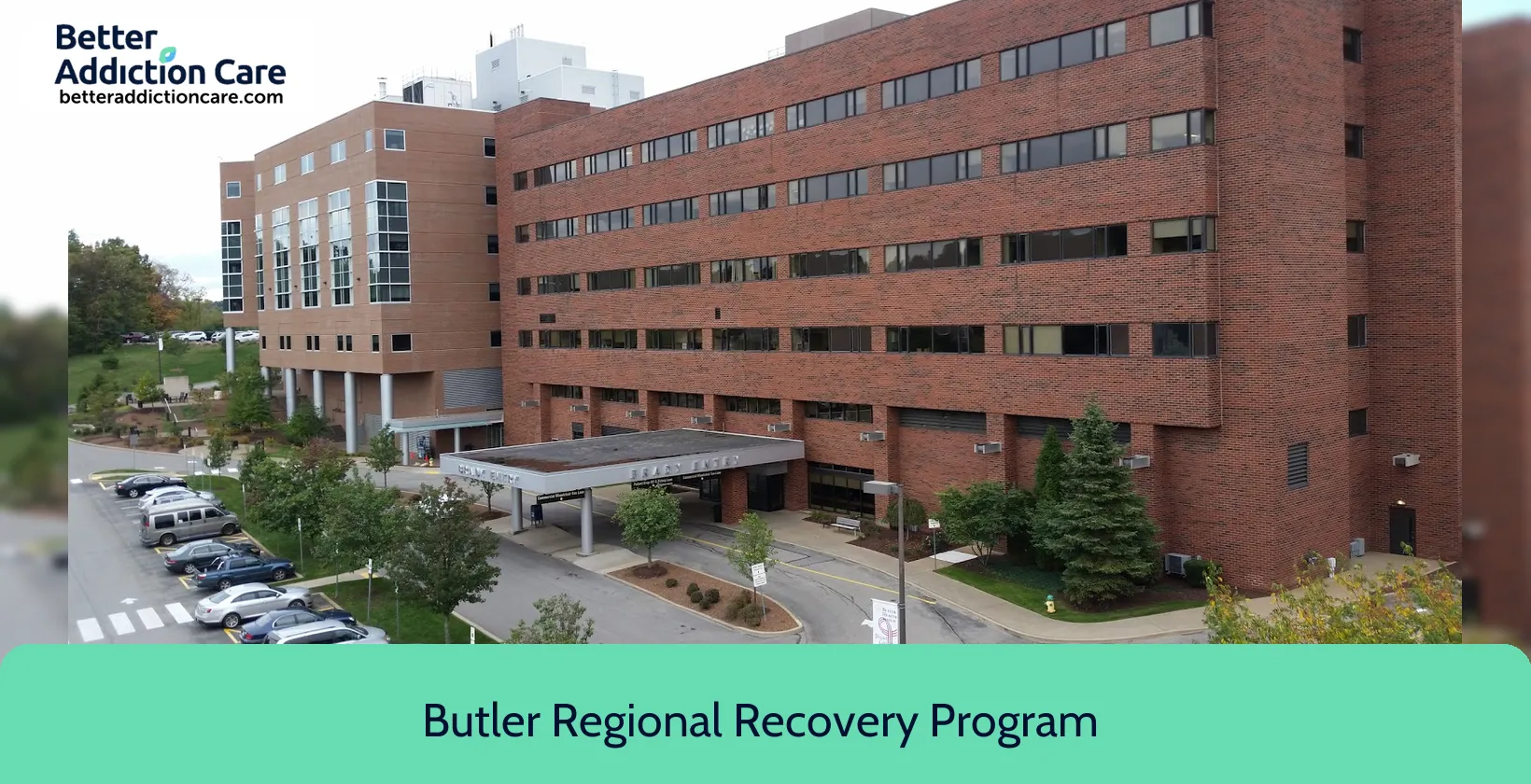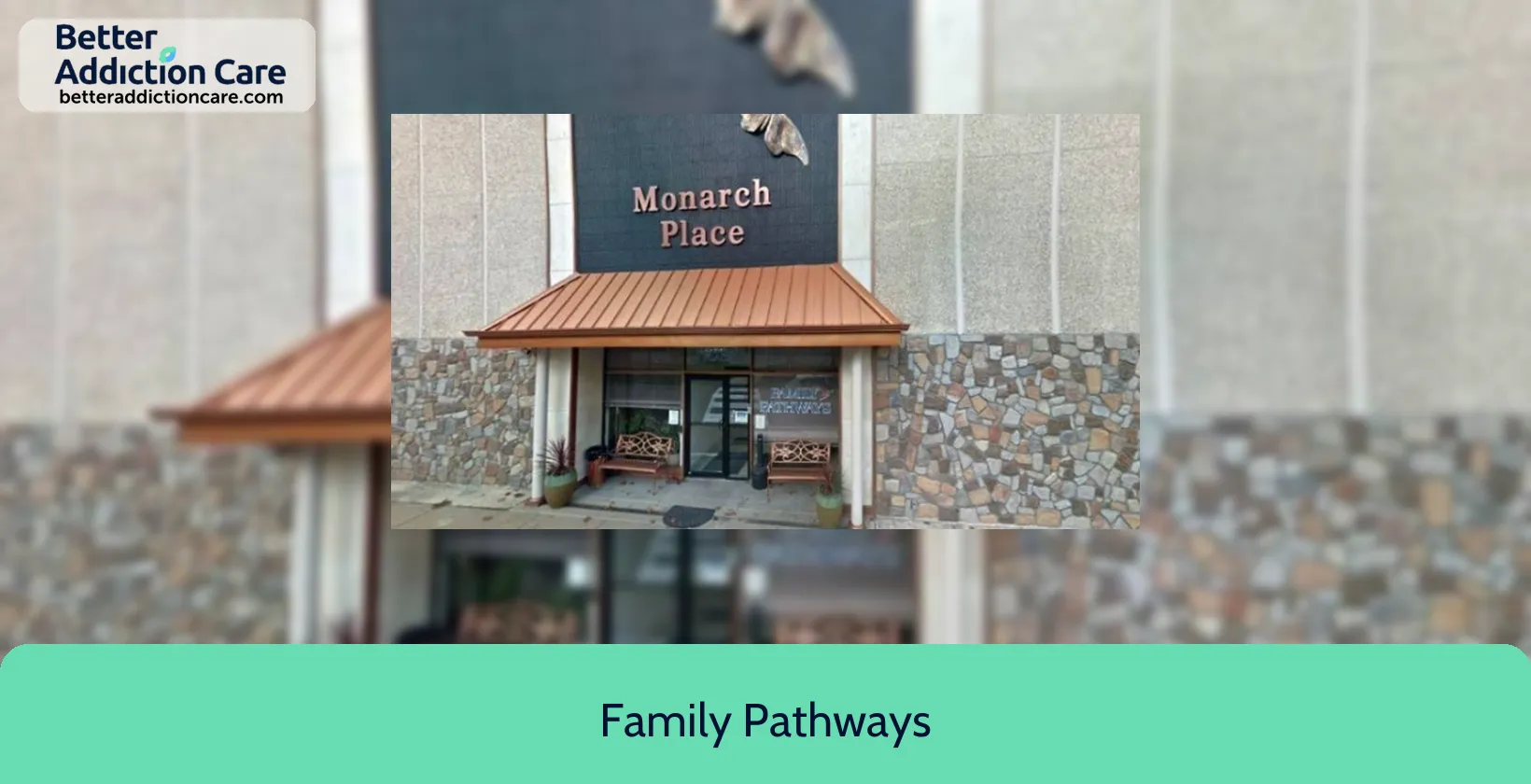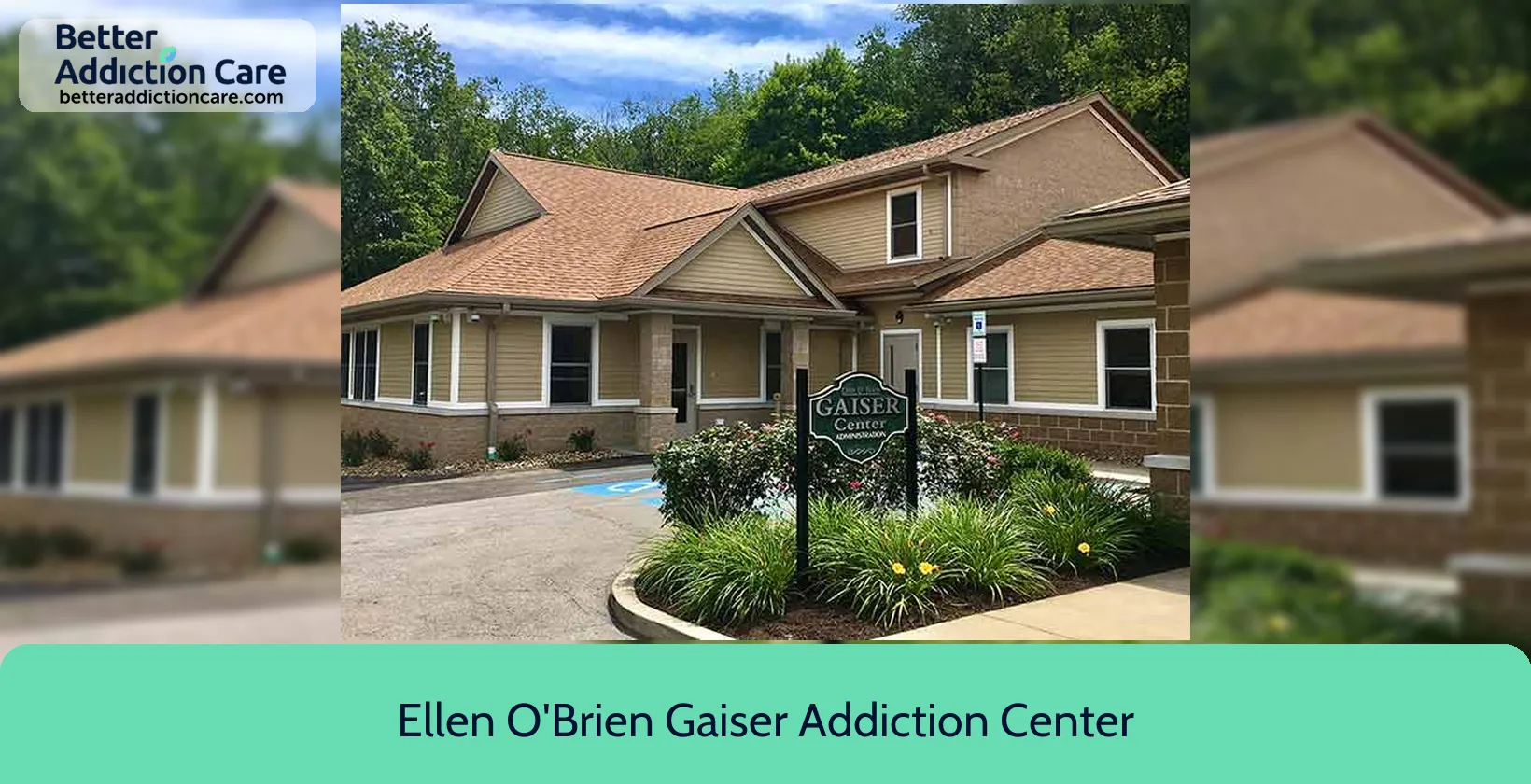Ellen O'Brien Gaiser Addiction Center 165 Old Plank Road
Overview
Ellen O'Brien Gaiser Addiction Center 165 Old Plank Road is a substance abuse treatment center for people seeking treatment near Butler County. As part of their treatment modalities for recovery, Ellen O'Brien Gaiser Addiction Center 165 Old Plank Road provides cognitive behavioral therapy, substance use disorder counseling, and trauma-related counseling during treatment. Ellen O'Brien Gaiser Addiction Center 165 Old Plank Road is located in Butler, Pennsylvania, accepting cash or self-payment for treatment.
Ellen O'Brien Gaiser Addiction Center 165 Old Plank Road at a Glance
Payment Options
- Cash or self-payment
- Medicaid
- Private health insurance
- Federal, or any government funding for substance use treatment programs
Assessments
- Screening for tobacco use
- Comprehensive mental health assessment
- Comprehensive substance use assessment
- Outreach to persons in the community
- Screening for mental disorders
Age Groups
- Seniors or older adults
- Young adults
- Adults
Ancillary Services
- Case management service
- Suicide prevention services
- Mental health services
- Social skills development
- Transportation assistance
Highlights About Ellen O'Brien Gaiser Addiction Center 165 Old Plank Road
7.52/10
With an overall rating of 7.52/10, this facility has following balanced range of services. Alcohol Rehabilitation: 8.00/10, Drug Rehab and Detox: 8.15/10, Insurance and Payments: 6.00/10, Treatment Options: 7.94/10.-
Drug Rehab and Detox 8.15
-
Alcohol Rehabilitation 8.00
-
Treatment Options 7.94
-
Insurance and Payments 6.00
Treatment At Ellen O'Brien Gaiser Addiction Center 165 Old Plank Road
Treatment Conditions
- Alcoholism
- Substance use treatment
Care Levels
- Hospital inpatient treatment
- Short-term residential
- Long-term residential
- Aftercare
Treatment Modalities
- Cognitive behavioral therapy
- Substance use disorder counseling
- Trauma-related counseling
- Smoking/vaping/tobacco cessation counseling
- Treatment for gambling disorder
Ancillary Services
Additional Services
- Pharmacotherapies administered during treatment
- Mentoring/peer support
- Breathalyzer or blood alcohol testing
Special Programs
- Clients with co-occurring mental and substance use disorders
- Veterans
- Criminal justice (other than DUI/DWI)/Forensic clients
- Clients who have experienced trauma
- Clients who have experienced sexual abuse
Get Help Now
Common Questions About Ellen O'Brien Gaiser Addiction Center 165 Old Plank Road
Contact Information
Other Facilities in Butler

6.83

7.73

7.09

7.11

7.22

6.83
DISCLAIMER: The facility name, logo and brand are the property and registered trademarks of Family Pathways, and are being used for identification and informational purposes only. Use of these names, logos and brands shall not imply endorsement. BetterAddictionCare.com is not affiliated with or sponsored by Family Pathways.

